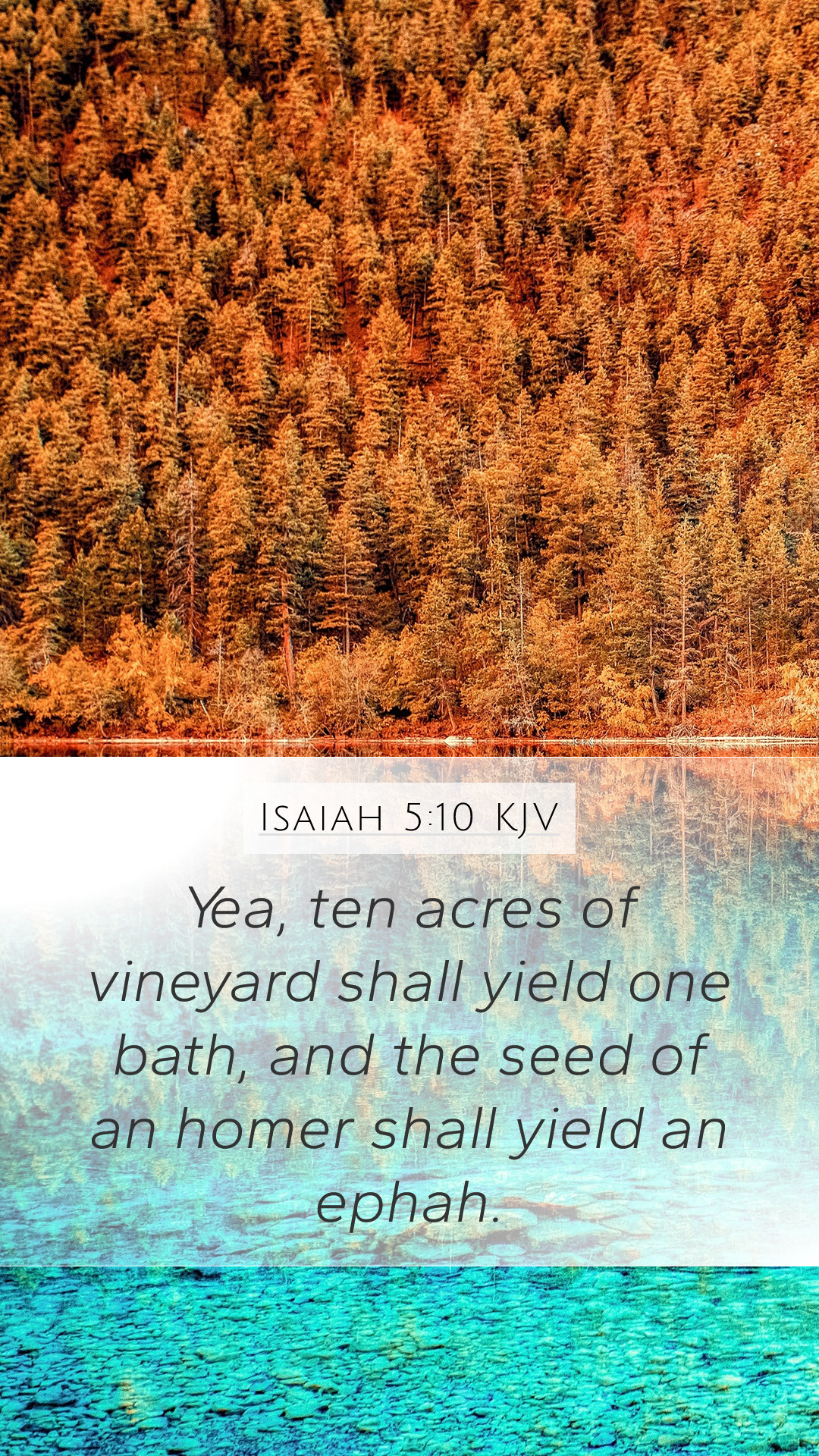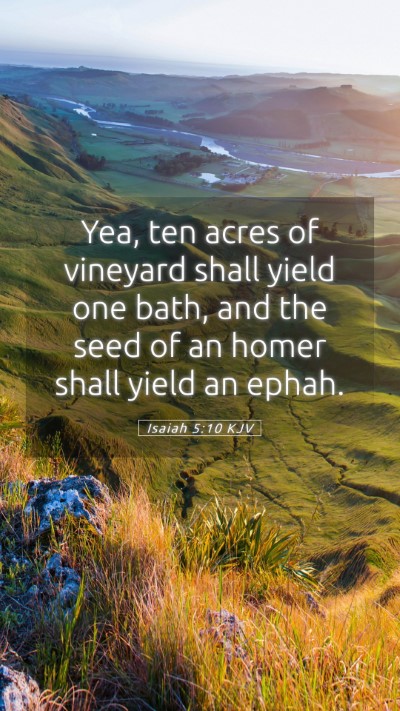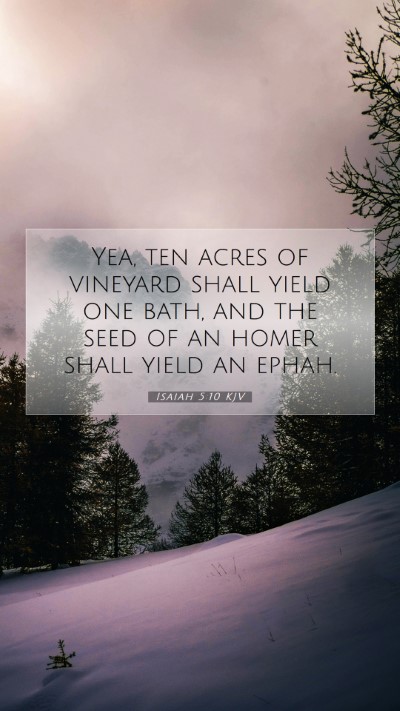Bible Verse Meaning of Isaiah 5:10
Isaiah 5:10 states, "For ten acres of vineyard shall yield one bath, and a homer of seed shall yield a mere ephah." This verse offers profound insights into the consequences of sin and the impending judgment of God upon Israel due to their disobedience.
This verse can be understood through a combination of perspectives from notable public domain commentaries such as those by Matthew Henry, Albert Barnes, and Adam Clarke. Let's explore these interpretations in detail.
Context and Overview
In the broader context of Isaiah 5, the prophet presents a parable about a vineyard, symbolizing Israel. The judgment described in verse 10 reflects the spiritual and moral decay within the nation, illustrating that their labor will yield little due to God's disfavor.
Insights from Matthew Henry
Matthew Henry emphasizes the spiritual barrenness of Israel. The prophet uses agricultural metaphors to depict how the people's sins result in productivity that is drastically reduced. The contrast between expectation and reality underscores a deeper truth about the consequences of neglecting God’s commandments.
Albert Barnes' Commentary
Albert Barnes interprets this verse as a warning of judgment. He elucidates that God’s blessings will be withdrawn, leading to desolation and frustration in their agricultural efforts. The imagery of sowing and reaping serves as an analogy for the spiritual state of the people; what they sow in sin, they will reap in scarcity.
Adam Clarke's Analysis
Adam Clarke points out how this verse reflects a profound economic and spiritual reality. The measurement terms, "bath" and "ephah," indicate a scarcity, illustrating how the natural order is overturned as a consequence of divine judgment.
Key Themes and Significance
- Divine Judgment: The verse serves as a stark reminder that neglect of God leads to famine—not just of physical produce but a famine of spiritual fruitfulness.
- Spiritual Barrenness: This reflects a deeper condition within Israel, symbolizing how disobedience leads to a lack of God’s blessings.
- Anticipation of Restoration: Although this passage speaks of judgment, it also provides a basis for the message of hope and restoration found later in Isaiah.
Application for Today
This verse invites modern readers to reflect on their spiritual lives and the fruits of their labor. It serves as a reminder to seek God’s guidance and remain faithful to His commandments to avoid spiritual barrenness and receive His blessings.
Related Bible Cross References
- Jeremiah 12:10 - References the destructive behavior of shepherds (leaders) towards God’s people.
- Hosea 10:1 - Discusses Israel as a luxuriant vine that bears fruit.
- Matthew 7:17-20 - Talks about recognizing true believers by the fruit they bear.
Conclusion
Understanding Isaiah 5:10 and its implications provides Bible study insights into God’s character and the consequences of straying from His path. Through careful Bible verse interpretation, believers can learn how to apply ancient truths meaningfully to contemporary life.
For those engaged in online Bible study, this verse exemplifies the need for Bible study guides that address both historical context and modern application. By reflecting on these insights, believers can deepen their Bible verse understanding and enrich their spiritual lives.


